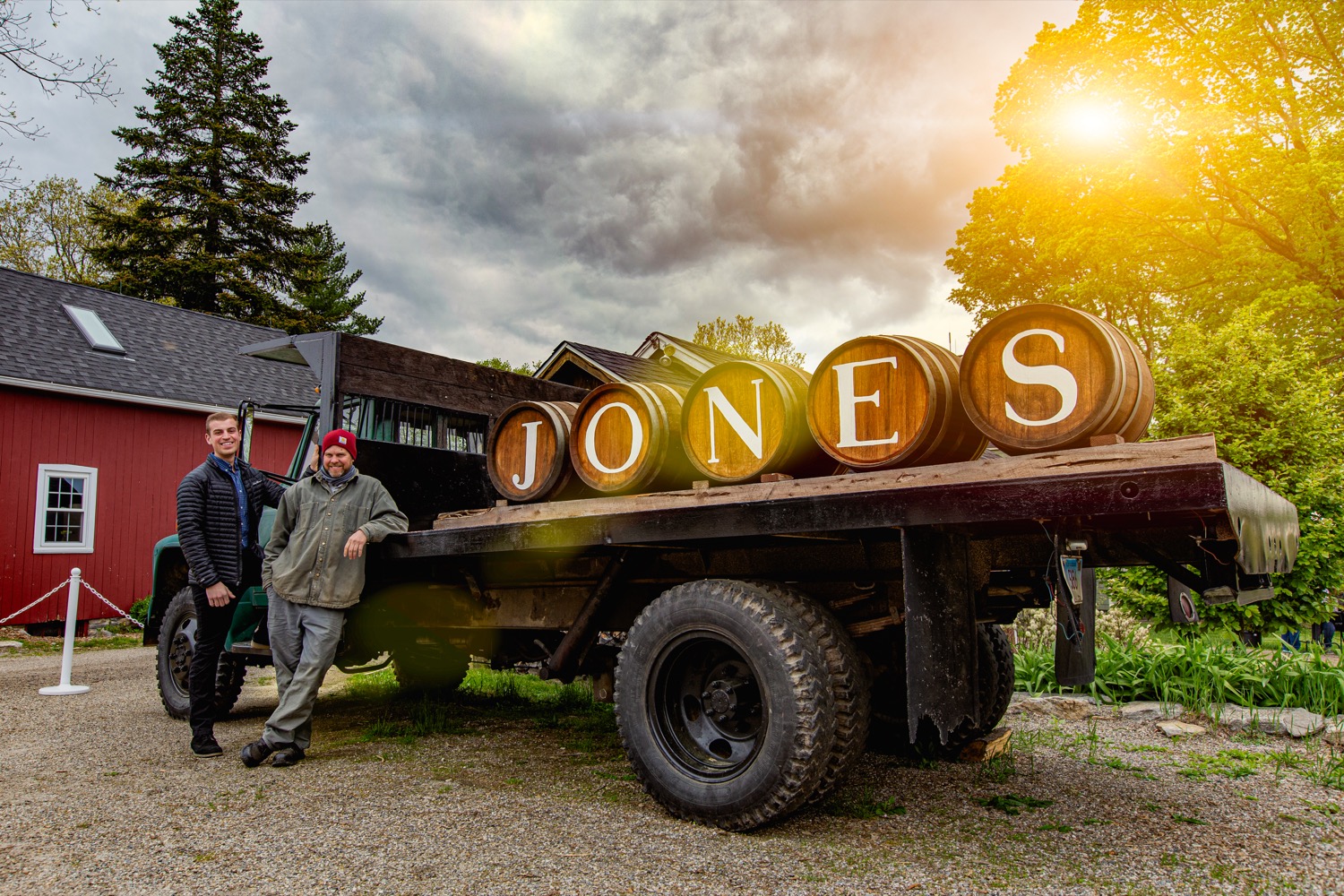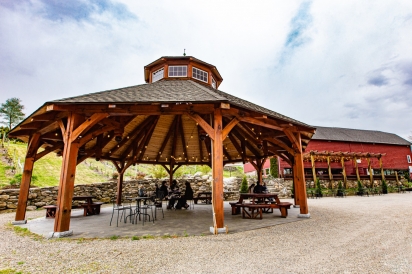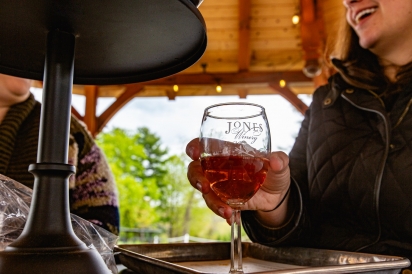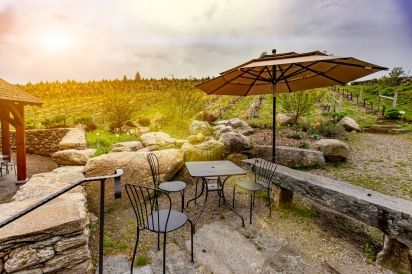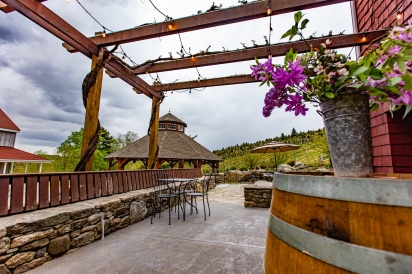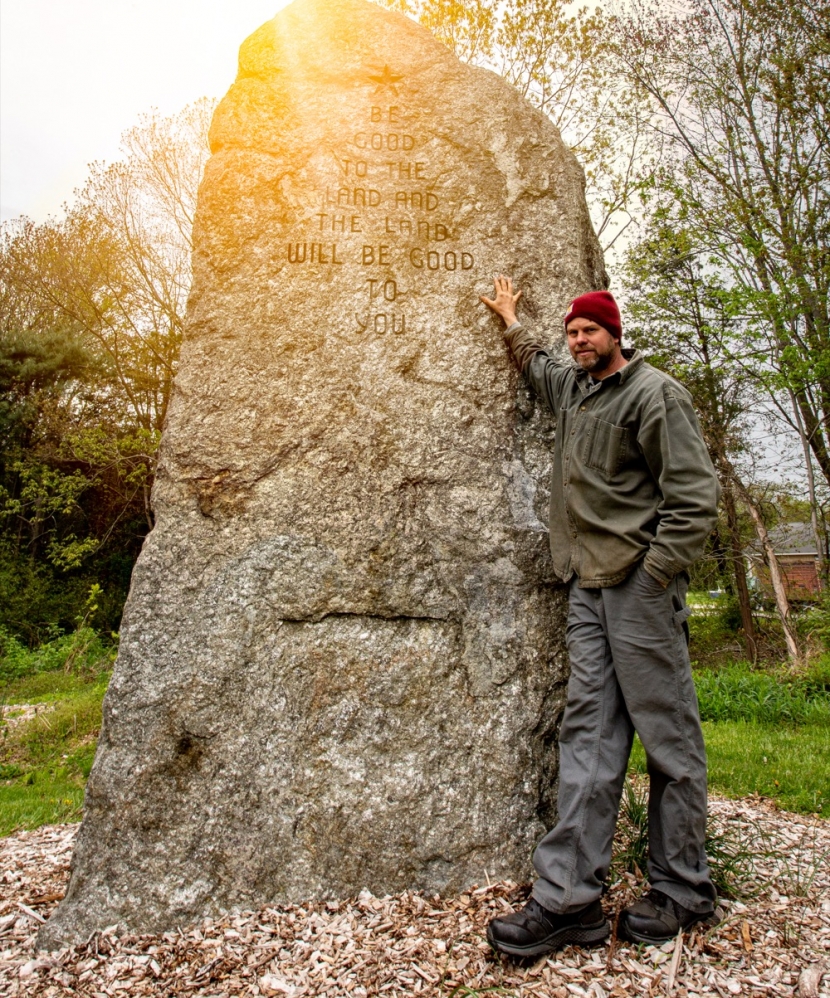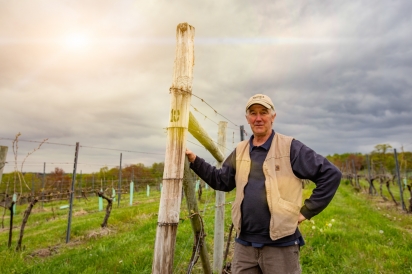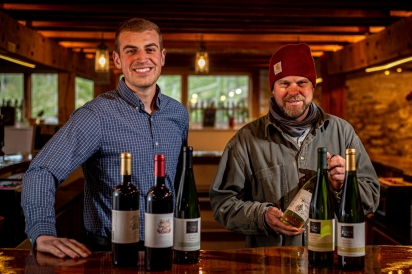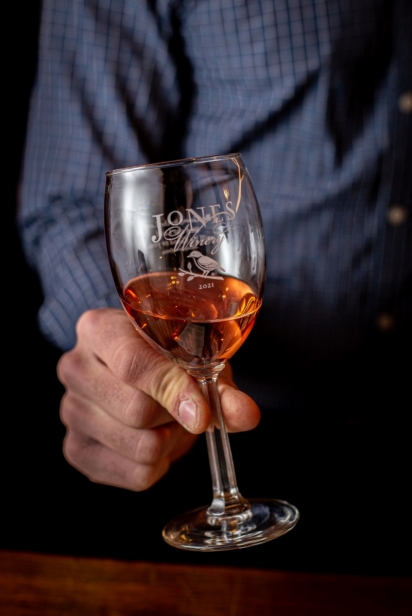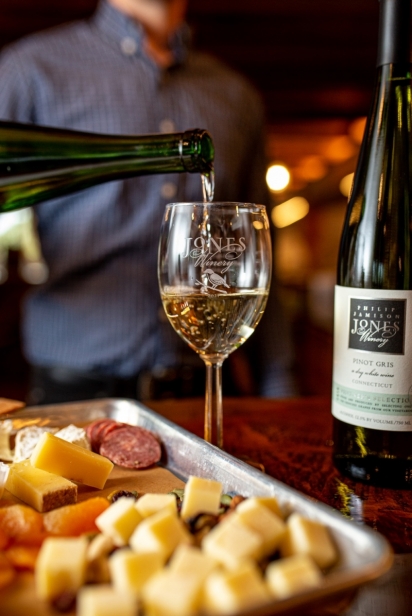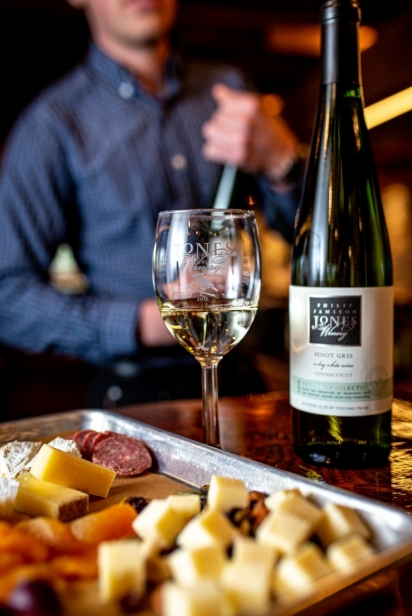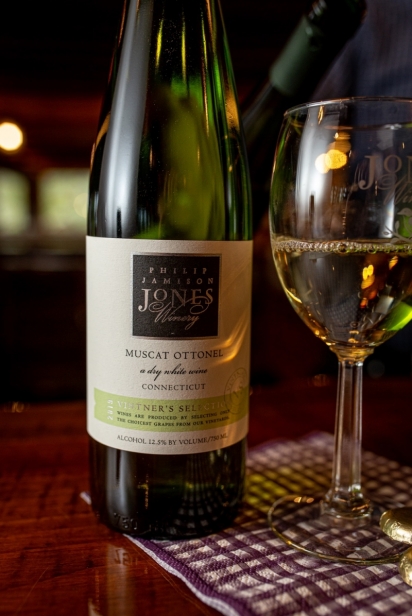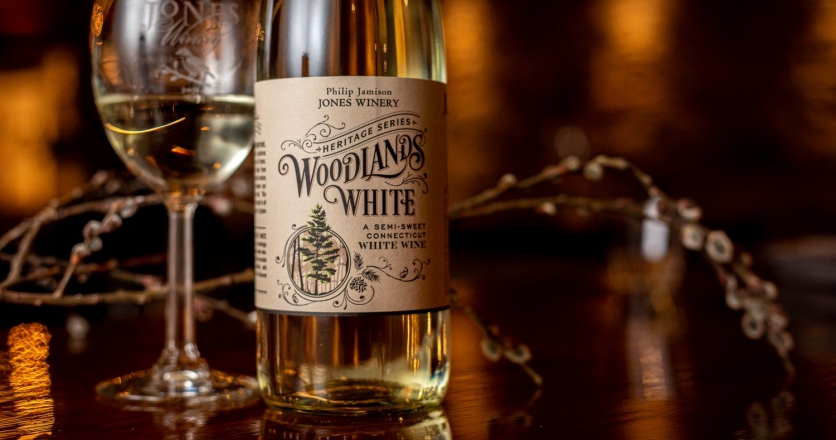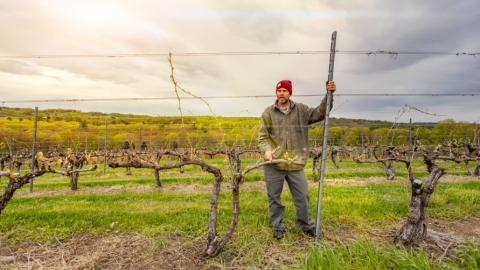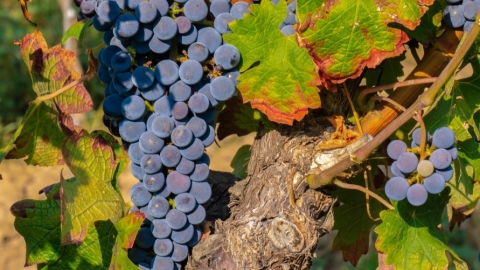Jones Family Farms & Winery
Walking amongst the sturdy Cabernet Franc vines at Jones Family Farms & Winery in Shelton, it's plain to see the reverence they are shown. Meticulously pruned and clearly doted over, their care demonstrates the respect for the land that was a core tenet for the farm’s founder, Philip James Jones. His mantra, “be good to the land, and the land will be good to you,” stands today as the Jones family’s motto and guiding principle and as a reminder of what it means to invest in a farm: Mother Nature brings bounty, but only to those committed to spending the time to nurture her.
Now in its seventh generation of family farmers, the people at Jones Family Farm know a thing or two about commitment. What Philip James Jones started in 1848 as a dairy farm has evolved through many stages of growth over the years. The mid-1900s found the farm transitioning to growing Christmas trees and, later, the establishment of pick-your-own strawberries, blueberries, and even pumpkins and winter squash. In the late-‘90s, Jamie Jones started the farm’s vineyard and winery, continuing the family’s over 170-year commitment to working the land.
Artifacts of the family’s history on the land can be found throughout the property. Just beyond the entrance to the farm, one of the first sights to greet visitors is the farm’s original John Deere tractor, first used at the farm in 1947. Not far beyond is a colossal, post-and-beam style gazebo (entirely free of nails, brackets, or any metal), made from trees that were harvested decades after being planted by fourth-generation steward, Philip Hubbell Jones.
However, of all the monuments across the farm, it is perhaps the engraved monolith bearing the Jones motto that is the clearest reminder of the family’s paramount duty. “Preserved for perpetuity,” Jamie Jones notes. As the main steward of the farm today, this sixth-generation Jones believes deeply in the commitment his family has made to the land and all they do to keep it surviving and sustainable. After graduating with a degree in plant science from Cornell University, Jamie returned to the farm and planted the vineyard in 1999, bringing with him an advanced knowledge of grape-growing practices, including the impact of soil and climate on their success.
A wealth of agricultural know-how is always valuable, but all the more so in Connecticut, with its abundance of complex microclimates. “The only other place I’ve seen with the same combination [of crops] is in Oregon,” Jamie says, in regard to the variety of products — from Christmas trees to grape vines — that they are able to grow on the farm. Their work neatly spans all seasons: spring opens with their new vintage wines; summer brings ripening berries; fall ushers in winter squash and the grape harvest; and for winter, “we become a holiday village,” Jamie says, “for a family’s capstone experience at the end of the year.”
As the Jones Family Farms name suggests, the work of operating the farm business is a family affair. Jamie’s sister, Gwyn Jones, designs their wine labels and branding. His wife, Christiana, brings her hospitality expertise to the tasting room, and his mother, Jean Jones — always ready to offer advice to customers on the health benefits of local, seasonal eating — is a registered dietitian who helped establish the berry and squash crops.
With the critical business and marketing end of the farm managed, Jamie is free to focus more of his attention on the vineyard. He shares the work of tending it with his father, Terry Jones — the family’s fifth-generation steward who, at 74 years old, “doesn’t stop,” Jamie says, and is “always up early and on the farm” — as well as Larry McColloch and Joseph Patrick, who are fitting representations of the farm’s present and future. With over 25 years’ experience between Benmarl Winery and Chamard Vineyards, McColloch became Jones’ head winemaker in 2008. Patrick, though only 21 years old, has worked on the farm since he was 15 and is now a budding young vintner, already with accolades to his name.
As the team walks through a row of Cabernet Franc grapes, Patrick and McCullough gently inspect the vines, all of which are pruned by hand. Tiny buds, visible in spring, will soon grow, color, and ripen for the fall harvest. Cabernet Franc enjoys widespread cultivation by wine makers in this region, partially due to its hardiness — it can survive in frigid temperatures, even as low as -10℉ — though it tends to be less well known than some other grape varieties.
For Jamie Jones, part of continuing his family’s legacy with the land has meant fighting against consumer expectations about wine — after all, Pinot Noir and Cabernet Sauvignon, while popular with wine drinkers, don’t grow very well in Connecticut. He is proud of their estate-bottled wines (comprised entirely of grapes grown in their vineyard, rather than grapes imported from other regions) such as their top-selling Woodlands White, part of their first grape harvest in 1999 and made with a blend of Cayuga White, Vidal Blanc, and Seyval Blanc, hybrid grapes that can both survive and thrive in Connecticut’s sometimes testy climate. Pinot Gris, Chardonnay, Riesling, and the aforementioned Cabernet Franc all also enjoy estate-grown status at Jones Family Farms. This is quite an accomplishment in a region that is known for turbulent weather — often the enemy of perennial plants, like grape vines — that climate change is causing to be ever more unpredictable.
For the Jones family, the challenges of adapting agricultural practices to combat a changing climate offer yet another opportunity to live up to their family’s motto. They are working to adapt one of the property’s old barns to host solar panels, and their winery production facility is already equipped with them, helping the farm reduce its reliance on power that is generated through the burning of fossil fuels. “We can actually be a part of the solution, rather than the problem,” Jamie says. “For example [in addition to solar paneling], having a no-till planting system for our annual crops can create a higher amount of plant matter, often better for the soil and resulting in higher yields, while releasing considerably less carbon into the atmosphere than a traditional tilling system would.”
As the Jones family looks ahead, it is clear that they do so with eyes on both the past and the future, marrying traditional sensibilities with modern practices, as they continue to live, harvest, and pour their patriarch’s motto of reverence and respect for land.
> Jones Family Farms & Winery: 606 Walnut Hill Rd., Shelton; 203-929-8425


